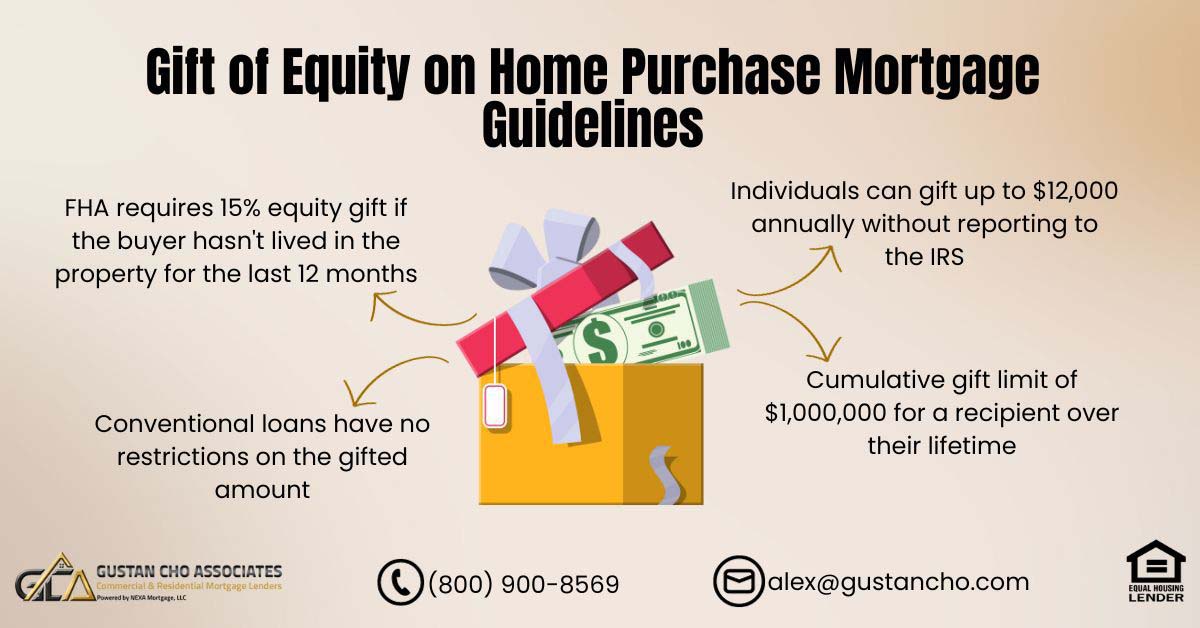What to Consider Before Applying for Equity Release Mortgages
What to Consider Before Applying for Equity Release Mortgages
Blog Article
Checking Out the Different Sorts Of Equity Release Mortgages Available Today
Equity Release home mortgages existing numerous choices for property owners aged 55 and over. equity release mortgages. These financial products provide to different demands and preferences, enabling people to gain access to funds from their building. From life time mortgages to shared appreciation home mortgages, each kind supplies distinctive advantages. Understanding these options is vital for making notified decisions. What aspects should one think about when selecting the most suitable equity Release plan? The details that comply with may shed light on this essential subject
Recognizing Equity Release Mortgages
Equity Release home loans give property owners, typically those aged 55 and over, with a means to access the value tied up in their residential or commercial property without needing to market it. This monetary choice enables individuals to convert a section of their home equity into cash money, which can be used for numerous purposes, such as home improvements, settling financial debts, or financing retirement.Equity Release can take different types, but it essentially entails loaning against the worth of the home while retaining ownership. House owners can choose to obtain a swelling amount or a series of smaller settlements, depending upon their monetary needs and preferences.Additionally, the quantity available for Release is affected by the property's value, the homeowner's age, and specific loan provider standards. On the whole, recognizing equity Release home loans is necessary for property owners to make educated decisions regarding touching into their home's equity while thinking about the long-lasting implications.
Lifetime Mortgages
Life time home mortgages represent among the most popular types of equity Release. This financial item allows home owners, generally aged 55 or older, to borrow against the worth of their property while retaining ownership. The lending, which is protected against the home, accumulates interest gradually however does not call for month-to-month settlements. Instead, the car loan and built up passion are paid off when the property owner dies or moves into long-lasting care.Lifetime home loans offer flexibility, as debtors can select to get a lump sum or go with a drawdown facility, accessing funds as needed. Notably, lots of plans included a no-negative-equity assurance, guaranteeing that customers will never ever owe greater than the value of their home. This function offers peace of mind, permitting people to appreciate their retired life without the fear of diminishing their estate. Overall, life time home loans function as a sensible option for those looking for financial backing in later life.
Home Reversion Plans

Drawdown Lifetime Mortgages
While numerous home owners seek methods to access their wealth, drawdown life time home loans provide a flexible choice that permits people to Release funds progressively. This type of equity Release mortgage enables property owners to obtain versus the worth of their home while maintaining possession. Unlike typical life time home mortgages, drawdown plans enable consumers to access a part of their equity upfront and withdraw extra funds as required, approximately an established limit.This attribute can be particularly advantageous for those that desire to handle their financial resources meticulously, as it decreases passion buildup by only billing passion on the quantities attracted. Furthermore, drawdown life time home loans typically feature a "no adverse equity assurance," making certain that consumers will never owe greater than their home's value. This alternative suits senior citizens who prefer monetary protection and flexibility, enabling them to satisfy unexpected expenditures or keep their way of living without needing to offer their residential or commercial property.
Improved Lifetime Mortgages
Enhanced Lifetime Home loans offer distinct benefits for qualified homeowners looking for to Release equity from their properties. Comprehending the qualification criteria is necessary, as it establishes who can benefit from these specialized loans. It is likewise essential to assess the prospective downsides linked with enhanced choices, ensuring a well-shaped perspective on their use.
Qualification Standards Discussed
Understanding the qualification standards for Boosted Life time Mortgages is vital for possible applicants looking for to access the equity in their homes. Usually, candidates have to be aged 55 or older, as this age requirement is basic in the equity Release market. Property owners need to possess a building valued at a minimal threshold, which can differ by lender. Notably, the residential or commercial property should be their main residence and in good problem. Lenders commonly assess the house owner's wellness standing, as specific health conditions may boost qualification and advantages. Additionally, applicants need to not have existing significant financial obligations protected against the residential property. Meeting these requirements allows people to discover Improved Life time Mortgages as a feasible alternative for accessing funds bound in their homes.
Advantages of Enhanced Home Mortgages
After clearing up the qualification criteria, it ends up being apparent that Enhanced Lifetime Home mortgages supply a number of significant benefits for property owners seeking to take advantage of their residential property equity. Mainly, they provide access to a bigger funding quantity compared to common lifetime home mortgages, profiting those with wellness problems or age-related variables that increase their life span danger. This boosted borrowing capability enables home owners to meet various monetary needs, such as home enhancements or retired life costs. Additionally, these home mortgages usually feature adaptable repayment choices, view it now allowing borrowers to manage their financial resources much more properly. The no-negative-equity assurance additionally assures that house owners will never ever owe greater than their building's value, supplying satisfaction. In General, Boosted Life time Home loans offer a compelling option for eligible homeowners looking for monetary remedies.
Potential Drawbacks Taken Into Consideration
While Boosted Life time Home loans supply various benefits, possible disadvantages call for mindful factor to consider. One significant problem is the effect on inheritance; the equity launched decreases the worth of the estate delegated recipients. In addition, these home loans can accumulate significant rate of interest with time, bring about a considerable financial obligation that might exceed the original car loan quantity. There might likewise be constraints on building modifications or rental, limiting homeowners' flexibility. Enhanced products often call for details health conditions, meaning not all homeowners will certainly qualify. Ultimately, taking care of the fees and charges related to these home mortgages can be complex, potentially leading to unexpected expenses. Consequently, people must thoroughly analyze their scenario and seek advice from monetary experts before continuing.
Shared Admiration Home Loans
Shared Admiration Home mortgages stand for a distinct monetary plan that allows house owners to gain access to equity while sharing future residential or commercial property value boosts with the lender. This approach provides potential advantages informative post such as minimized month-to-month payments, yet it likewise features drawbacks that need to be meticulously taken into consideration. Understanding the qualification demands is essential for those curious about this option.
Idea Introduction
Equity Release home loans, especially in the form of common appreciation home mortgages, supply home owners an one-of-a-kind financial solution that permits them to accessibility funds by leveraging the worth of their property. In this arrangement, a loan provider provides a lending to the home owner, which is typically paid back with a share of the residential property's future admiration in worth. This suggests that when the house owner offers the property or passes away, the lender gets a percentage of the increased worth, instead than just the first car loan amount. Shared gratitude mortgages can be appealing for those aiming to supplement their earnings or financing considerable expenses while maintaining possession of their home. Nevertheless, the monetary ramifications of common appreciation must be meticulously taken into consideration by potential debtors.
Benefits and Downsides
Common gratitude home mortgages can give significant economic benefits, they additionally come with significant downsides that possible borrowers should think about. These mortgages enable property owners to gain access to equity in their properties while sharing a portion of any type of future appreciation with the lender. This plan can be useful throughout times of rising residential property worths, using significant funds without monthly repayments. Nevertheless, the primary disadvantage is the possible loss of equity; homeowners might finish up with significantly reduced inheritance for beneficiaries. In addition, the complexity of the terms can result in misconceptions pertaining to settlement responsibilities and the percentage of admiration owed. It is important for borrowers to weigh these variables carefully before devoting to a shared recognition home loan.

Eligibility Needs
What requirements must house owners meet to get a shared appreciation home loan? Primarily, prospects should go to least 55 years old, assuring they are within the target market for equity Release products. Furthermore, the residential or commercial property must be their key house and commonly valued over a defined minimum threshold, typically around ? 100,000. Lenders additionally assess the property owner's economic conditions, pop over to these guys consisting of earnings and exceptional debts, to determine they can handle the mortgage sensibly. Notably, the building has to be in great condition and without significant lawful encumbrances. Homeowners ought to likewise have a clear understanding of the terms, including just how appreciation will be shared with the lending institution upon sale or transfer of the residential property, as this affects overall returns.
Choosing the Right Equity Release Choice
Regularly Asked Questions
What Age Do I Need to Be for Equity Release?
The age demand for equity Release normally begins at 55 for many plans. Some suppliers may supply alternatives for those aged 60 and above, reflecting varying terms based on specific circumstances and loan provider plans.
Will Equity Release Impact My Inheritance?
Equity Release can impact inheritance, as the quantity borrowed plus rate of interest minimizes the estate's value. Successors may receive less than anticipated, depending upon the residential property's gratitude and the overall debt at the time of passing.
Can I Move House With Equity Release?
The question of moving home with equity Release develops regularly. Generally, people can transfer their equity Release strategy to a brand-new property, but particular conditions might apply, calling for appointment with the lender for support.
Are There Fees Related To Equity Release Mortgages?
Fees related to equity Release mortgages can consist of plan costs, appraisal charges, and legal expenses. Additionally, there might be very early repayment fees, which can influence the general cost and monetary implications for the customer.
Exactly How Does Equity Release Influence My Tax Obligation Circumstance?
Equity Release can impact one's tax obligation scenario by possibly raising taxed revenue, as launched funds are considered capital. Nonetheless, it normally does not incur immediate tax liabilities, making it vital to get in touch with an economic consultant for personalized advice.
Final thought
In summary, the range of equity Release home loans available today offers home owners aged 55 and over multiple pathways to access their residential property's value - equity release mortgages. Whether selecting a lifetime mortgage, home reversion plan, or other alternatives, each choice presents unique advantages customized to private monetary needs. Cautious factor to consider and assessment with an economic consultant are necessary to assure the selected equity Release solution straightens with individual goals and economic scenarios, inevitably facilitating notified decision-making for a safe and secure economic future. Equity Release mortgages present different options for home owners aged 55 and over. Equity Release home loans offer home owners, generally those aged 55 and over, with a means to access the worth connected up in their property without needing to sell it. Enhanced Life time Mortgages provide distinctive advantages for eligible house owners seeking to Release equity from their residential or commercial properties. Equity Release home loans, particularly in the kind of common appreciation mortgages, provide home owners an one-of-a-kind financial solution that permits them to gain access to funds by leveraging the worth of their residential property. In summary, the range of equity Release home loans offered today supplies home owners aged 55 and over several paths to access their residential or commercial property's value
Report this page